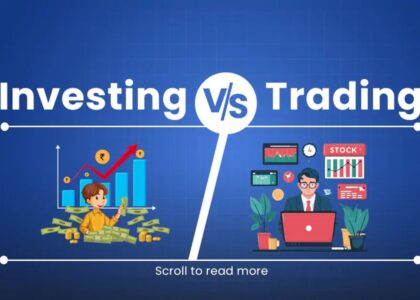Investing your money wisely helps it grow over time. Many people think about putting money into the stock market. Others consider buying property instead of buying it. In 2025, real estate continues to outperform stocks in many ways.
Someshwar Srivastav shares why he believes real estate remains a better choice for many investors.
- Long-Term Stability
Real estate tends to stay steady over the years. Home prices and land values often rise slowly but surely. According to Someshwar Srivastav, this steady growth helps investors plan for the future without sudden surprises. Stocks, on the other hand, can jump up one day and drop the next. When you invest in a house or a plot of land, you see its value increase bit by bit. That makes it easier to feel confident about your investment.
- You Can Touch It – Tangible Asset
One big advantage of property is that it is a physical thing you can see and touch. Someshwar Srivastav explains that owning a home or a piece of land feels real. It gives investors a sense of security. Stocks are just numbers on a screen. You cannot visit a share or live in a stock. With property, you can walk through the rooms, inspect the walls, and check the neighbourhood. This hands-on aspect makes many people feel safer about their investment choice.
- Use of Leverage
Buying property often lets you use a loan called a mortgage. Someshwar Srivastav highlights that with just a 10–20% down payment, you can own a much larger asset. For example, if you pay ₹20 lakhs as a down payment, you might get a home worth ₹1 crore. That gives you control over a big asset with less money upfront. In the stock market, you usually need to pay the full price of shares. Margin trading is risky, and loans for stocks can come with high interest. Property leverage is safer and more common.
- Tax Advantages
Governments often give tax breaks on property loans. As Someshwar Srivastav notes, you can deduct interest paid on home loans from your taxable income. You can also save on capital gains tax when you sell after a certain period. Stocks do have tax benefits, but rules can change quickly. Property tax rules tend to stay stable for longer. These tax savings add up over the years and boost your overall returns.
- Hedge Against Inflation
Inflation means the cost of goods and services goes up over time. Someshwar Srivastav remarks that property values generally move up with or above inflation. If a flat costs →50 lakhs in 2020, it might cost ₹60 lakhs in 2025. This keeps your investment’s real value intact. Stocks can suffer badly during high inflation. Companies might experience low revenue and share prices could fall. Real estate gives a natural shield against rising prices.
- Growing Demand for Homes
India’s population is young and growing. More people move to cities each year. Someshwar Srivastav observes that by 2031, nearly 600 million Indians will live in urban areas. This drives a high demand for homes and apartments. When more people need a place to live, property values go up. Stocks depend on company performance, which can be volatile. Real estate demand is driven by basic human needs—shelter and community, which are less likely to disappear.
- Less Volatility
Stock prices can swing wildly in a single day. Real estate prices move more slowly. Someshwar Srivastav points out that this lower volatility means less stress for investors. You rarely see a home drop 10% in a single week. Even if the market cools, prices tend to stabilise rather than crash. This calm price behaviour helps you sleep better at night, knowing your investment is not tied to daily news or market rumours.
- Regular Passive Income
Renting out property gives you a monthly cash flow. Someshwar Srivastav reminds us that rental yields in India often range from 2% to 4% per year. New models like co-living and serviced apartments can push yields even higher. Stocks pay dividends, but dividend rates can be cut or delayed. Rent checks usually arrive like clockwork each month, helping you cover loan payments or everyday expenses.
- Predictable Market Cycles
Real estate markets have cycles that last several years. Someshwar Srivastav warns that you need patience, but cycles rarely catch you off guard. You can track when areas are about to grow or cool down by watching new roads, school openings, or factory setups. Stock market cycles can change on a dime with economic data or global events. By studying local development plans, property investors get clearer signals about when to buy and sell.
- Emotional and Community Value
A home is more than an asset—it is part of your life. Someshwar Srivastav notes that owning property builds a sense of belonging. You can make memories, paint walls, or plant a garden. Stockholders do not get these perks. Even if you sell, your friends or family might still live in the neighbourhood you helped grow. This emotional link adds a priceless value to real estate investments.
Conclusion
In 2025, both stocks and real estate offer ways to grow money. Yet, Someshwar Srivastav makes a strong case for choosing property. Real estate brings long-term stability, a tangible asset you can touch, smart use of leverage, tax benefits, and protection against inflation. It thrives on human needs for shelter and community, delivers regular rent income, and has easier-to-follow market cycles. Plus, owning a home builds emotional value that stocks cannot match.
If you want an investment that feels real, pays regularly, and stands strong during ups and downs, real estate still beats stocks in 2025. As Someshwar Srivastav advises, “Think long term, follow local growth signals, and enjoy both financial and personal rewards.” With these simple steps, you can start your journey to property success today.
Read More Related Blogs :









